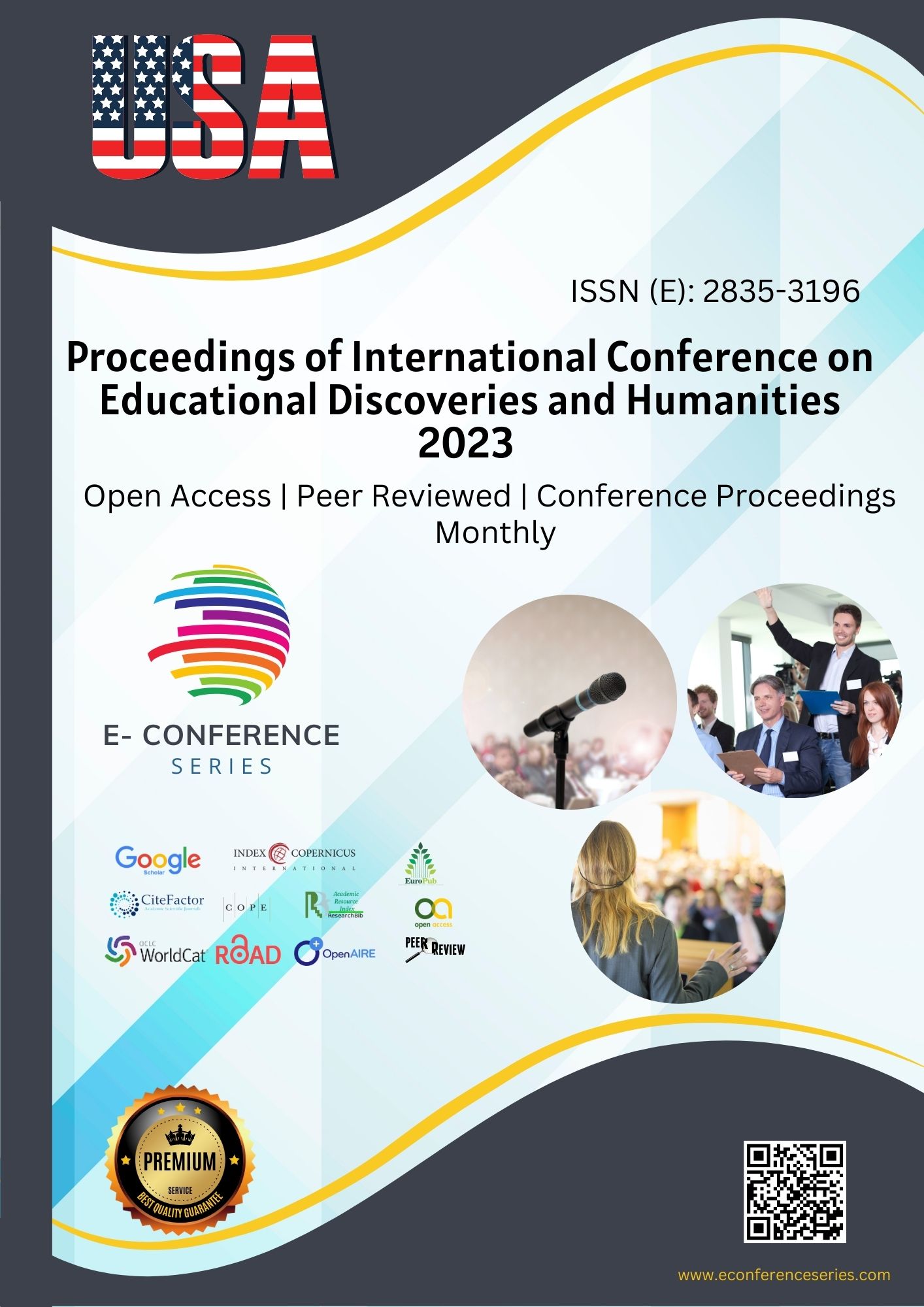LINGUACULTURAL FEATURES OF THE CONCEPT OF “GOODNESS”
Keywords:
goodness, concept, corresponds, linguacultural, features.Abstract
This article is devoted to the analysis of the concept of Goodness. “Good is all that, and only that, which is “according to nature”, which “pleases”, which “God commands”, which “contributes to the preservation of society”, which “corresponds to historical necessity”, which “is consistent with the requirements of reason " etc.
References
Berestnev G.I. Iconicity of good and evil // Questions of linguistics. - M.: Nauka, 1999. - p. 99-113.
Boldyrev N.N. Language Mechanisms of Evaluative Categorization //Reality, Language and Mind: An International Book of Research Reports. Issue 2. Tambov: Tambov University Press, 2002. - p. 360-369.
Vereshchagin E.M. On the relativity of worldly ethical norms. //Logical analysis of language: Languages of ethics. - M.: Languages of Russian culture, 2000. - p. 235-245.
Gak V.G. Actant structure of sins and virtues. //Logical analysis of language: Languages of ethics. - M.: Languages of Russian culture, 2000. - p. 90-96.
Gerasimova I.A. Deontic logic and cognitive attitudes. //Logical analysis of language: Languages of ethics. - M.: Languages of Russian culture, 2000. - p. 7-16.
Dal V. I. Explanatory Dictionary of the Living Great Russian Language. T.1. - M.: State. foreign publishing house and national dictionaries, 1955. - 700 p.
Demyankov V.Z. The concept and concept in fiction and scientific language // Questions of Philology. No. 1. 2001. S. 35-47.
Karasik V.I. Language circle: personality, concepts, discourse. - Volgograd: Change, 2002. - 477 p.
Downloads
Published
Issue
Section
License

This work is licensed under a Creative Commons Attribution-NonCommercial 4.0 International License.








